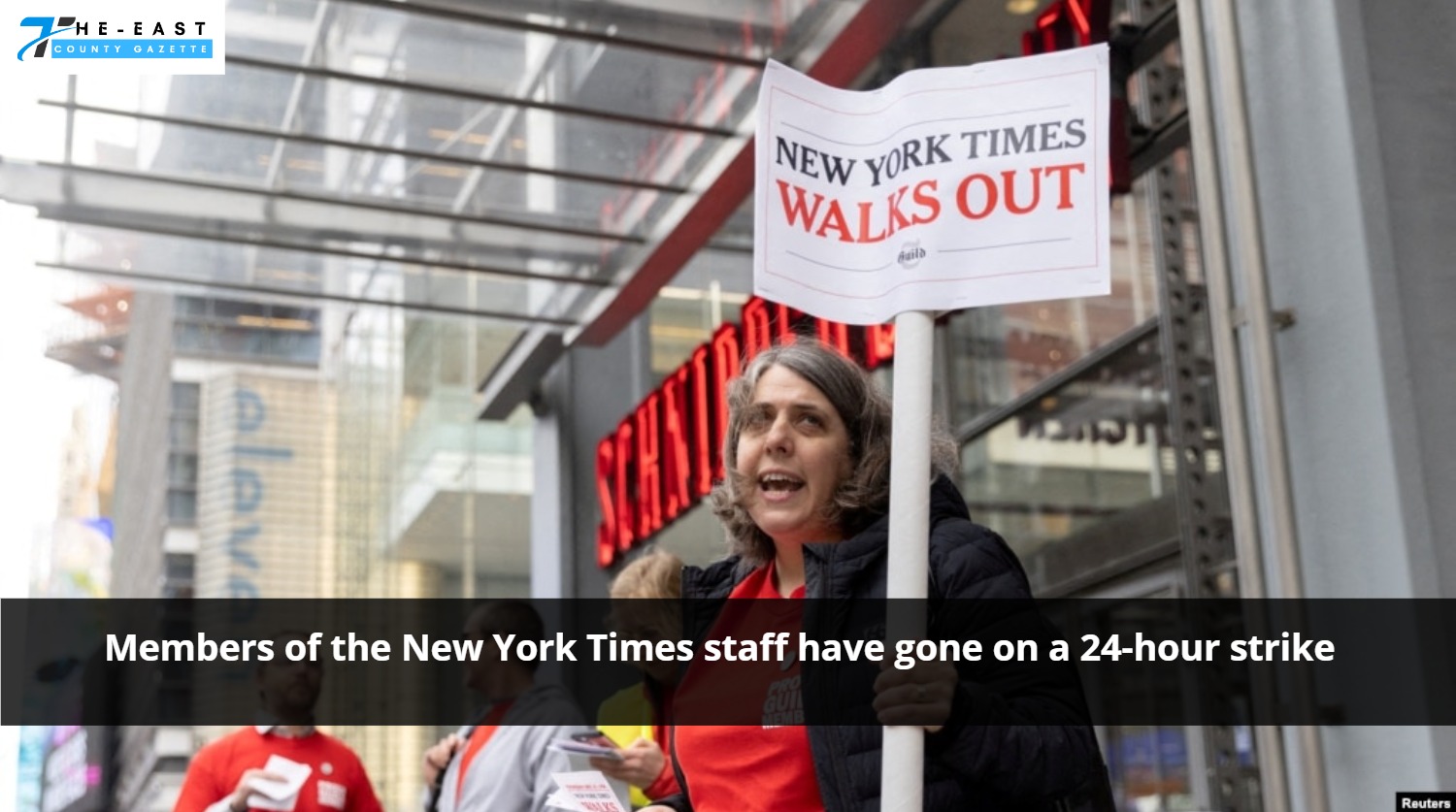The first strike of its type at the newspaper in more than 40 years began on December 8, with hundreds of journalists and other employees walking out for 24 hours.
It’s been over 40 years since the last strike at The New York Times, but on Thursday, hundreds of journalists and other employees began a 24-hour walkout.
Members of The NewsGuild of New York and those who work in the newsroom had expressed frustration with the prolonged bargaining process that had ensued since March 2021, when their previous contract expired.
More than 1,100 workers, as reported by the union last week, will begin a 24-hour strike at midnight tonight. Thursday if the parties can’t settle on a contract by then.
“are now officially on work stoppage, the first of this scale at the company in 4 decades,” the NewsGuild tweeted Thursday morning.

While refusing to do one’s job is never an easy choice, our members are prepared to do whatever it takes to secure a more favorable working environment for journalists.
Wage hikes and flexible work arrangements were among the topics discussed during negotiations on Tuesday and part of Wednesday, but the two sides remained far apart.
On Wednesday night, the union announced through Twitter that an agreement had not been reached and that the walkout would proceed as planned.
The statement added, “We were ready to work for as long as it took to negotiate a fair arrangement, but management walked away from the table with five hours to go.”
We’re worth it, the union emphasized. When informed of the strike, however, New York Times spokesperson Danielle Rhoades Ha claimed in a statement that the paper was still in discussions at the time.
When asked why they were taking such drastic measures, she remarked, “It is disheartening that they are doing so when we are not at an impasse.”
There was some confusion about how Thursday’s coverage would be affected, although strike backers included reporters and editors at the digital paper’s lightning-fast live-news desk.
Workers organized a demonstration in front of the Times Square building that afternoon.
According to The Associated Press, Rhoades Ha said the company has “strong preparations in place” to keep creating material, including relying on foreign reporters and other non-union journalists.
Deputy Managing Editor Cliff Levy referred to the impending strike as “puzzling” and “an unsettling moment in negotiations over a new contract” in a note sent to guild-represented employees on Tuesday night.
Levy noted that this would be the first strike by the bargaining unit since 1981 and that it “comes despite intensifying efforts by the company to make progress.”
More than a thousand workers signed a letter from the NewsGuild complaining that management has been “dragging its feet” during contract negotiations for nearly two years and that “time is running out to reach a fair deal” before the end of the year.

The NewsGuild claims that the firm informed strike-planning employees that they would not be paid during the walkout and that union members were asked to put in extra time before the strike to get everything done.
Several other, shorter walkouts have taken place at the New York Times in recent years, including a half-day protest in August by a new union representing technology workers who claimed unfair labor practices.
Significant progress was made when the corporation agreed to expand fertility treatment benefits. The union was given the option to pick between the existing flexible pension plan and an upgraded 401(k) retirement plan.
According to Levy, the firm has also proposed a raise in pay of 5.5% in the first year of the new contract, followed by increments of 3% in both 2023 and 2024. This is in comparison to the 2.2% yearly raises provided for in the previous deal.
Union spokesperson Stacy Cowley, who also works as a financial reporter, stated that the union is asking for a 10% wage boost at ratification to make up for the two years of missed raises.
Cowley said the Times has expected its personnel to be in the office three days a week, but many have not been showing up to the office very often in an informal protest.
The union wants the contract to guarantee employees the ability to work remotely some of the time, provided their positions allow it.
Source: The Hindu

